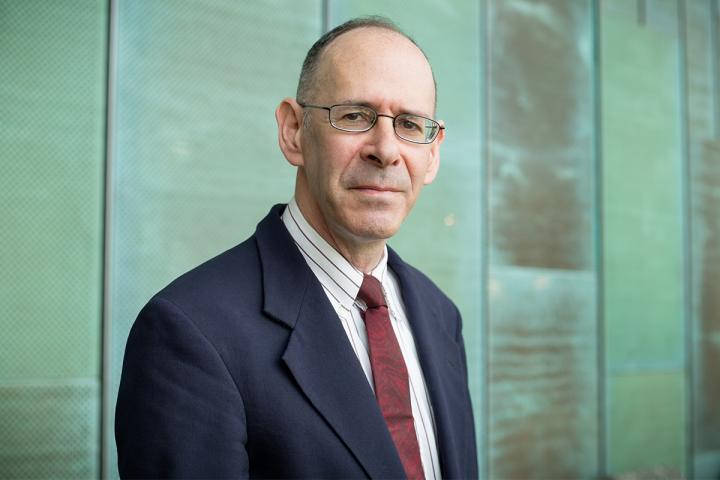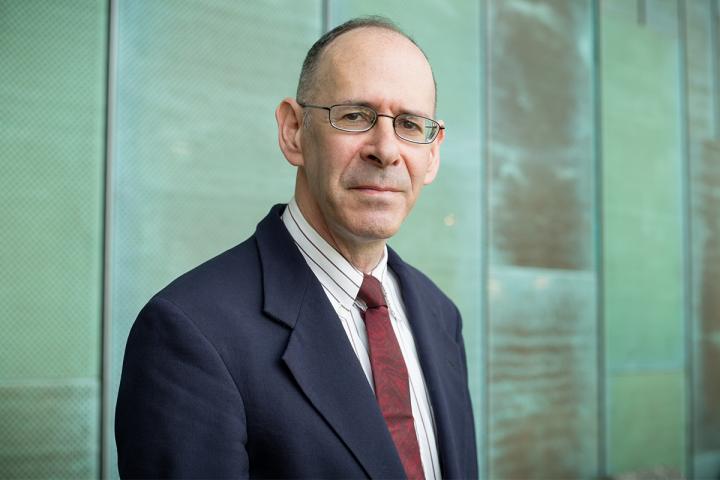
Credit: Photo by L. Brian Stauffer
CHAMPAIGN, Ill. — There is an easy way to reduce lines at the airport, increase security and save the Transportation Security Administration money, according to a new study by University of Illinois researchers: waive the $85 fee for frequent fliers to enroll in the TSA PreCheck program, which allows pre-screened, verified travelers to go through expedited security at airports.
The study by computer science professor Sheldon H. Jacobson and graduate students Arash Khatabi and Ge Yu calculated the cost of extensive screening compared with expedited screening in terms of workforce labor hours and equipment. They found that costs saved by frequent travelers using expedited security exceeded the cost of waiving their enrollment fees for PreCheck.
"This is an easy case where spending some money will save the federal government more money," Jacobson said. "There is a transition period – the savings are realized over the first five years, and then in perpetuity. So if the federal government is looking for a way to save money, giving TSA PreCheck at no cost to high-volume, high-value fliers makes sense."
The study, published in the Journal of Transportation Security, looks at multiple scenarios of how many people would have to enroll at different travel frequencies for the fee waiver to be cost-efficient. The researchers found that the average travel frequency of those enrolling would have to be six round trips, or 12 screenings a year.
"We only look at the direct cost savings in labor and equipment. We don't even talk about the savings in time of the passengers who would no longer have to wait hours in line," Jacobson said. "That could add tens or hundreds of millions of dollars a year, which would be a bonus to the economy. More people could decide to fly, because of the time and cost savings."
The benefits would extend beyond the cost. According to Jacobson, an expert in aviation security, submitting every passenger to heightened security actually has the adverse affect of making air travel less safe by diluting resources that should be focused on high-risk, unknown passengers. TSA PreCheck reduces the number of unknowns by pre-screening passengers. A traveler who wishes to enroll in PreCheck pays an $85 fee to be subjected to a background check, and if nothing of concern is found, receives PreCheck certification for five years.
"The strength of PreCheck is the background check. It's not the item that we're trying to stop, it's the person with ill intent who we're trying to stop," Jacobson said. "PreCheck vets people and says, 'These people are not likely to be a problem to the air system.' They make sure you are who you say you are, and that your background shows no evidence that you are going to cause a problem."
Getting more travelers enrolled in PreCheck – particularly those who fly three or more round trips in a year – would produce the desired benefits, Jacobson said, yet enrollment has lagged far behind projected numbers. Waiving the fee might entice more travelers to enroll.
"We are saying to TSA and to the decision-makers in Washington, 'It's worth it to invest that money because you're going to get it back. It will facilitate more people going through checkpoints more quickly, make the system more secure and produce a cost savings for the TSA. It's a win-win-win situation,'" he said.
###
Editor's notes: To contact Sheldon H. Jacobson, call 217-244-7275; email: [email protected].
The paper "When should TSA PreCheck be offered at no cost to travelers?" is available online.
DOI: 10.1007/s12198-016-0176-z
Media Contact
Elizabeth Ahlberg Touchstone
[email protected]
217-244-1073
@NewsAtIllinois
http://www.illinois.edu
############
Story Source: Materials provided by Scienmag





